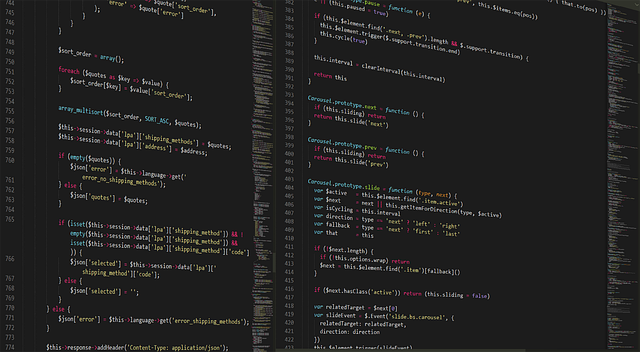What is an AI Agent? Everything You Need to Know
AI agents represent one of the most fascinating developments in artificial intelligence technology, functioning as autonomous systems that can perceive their environment, make decisions, and take actions to achieve specific goals. These intelligent entities are revolutionizing industries from healthcare to finance by automating complex tasks and providing sophisticated problem-solving capabilities. Understanding AI agents is crucial for anyone looking to grasp the current landscape of artificial intelligence and its practical applications in our daily lives.

AI agents are autonomous software systems designed to perceive their environment, process information, and take actions to achieve predetermined objectives without constant human intervention. These sophisticated programs combine machine learning algorithms, decision-making capabilities, and environmental awareness to perform tasks that traditionally required human intelligence.
Understanding Agent Based AI Systems
Agent based AI represents a paradigm where multiple intelligent agents work together or independently to solve complex problems. These systems operate on the principle of distributed intelligence, where each agent has specific roles and capabilities. The architecture typically includes sensors for environmental perception, processors for decision-making, and actuators for executing actions. Agent based AI systems excel in scenarios requiring parallel processing, real-time responses, and adaptive behavior in dynamic environments.
The core components of agent based AI include the agent’s knowledge base, inference engine, and communication protocols. These elements work together to enable agents to learn from experience, adapt to changing conditions, and collaborate with other agents or humans effectively.
Types of AI Agents with Examples
AI agents can be categorized into several distinct types based on their capabilities and operational characteristics. Simple reflex agents respond to immediate perceptions using condition-action rules, such as basic chatbots that provide predetermined responses to specific keywords. Model-based reflex agents maintain internal representations of their environment, like navigation systems that track location and route information.
Goal-based agents work toward achieving specific objectives, exemplified by recommendation systems that aim to suggest relevant content to users. Utility-based agents evaluate multiple possible actions and select those that maximize expected utility, such as trading algorithms that optimize investment portfolios. Learning agents continuously improve their performance through experience, including spam filters that adapt to new types of unwanted emails.
Multi-agent systems involve multiple AI agents working collaboratively, such as autonomous vehicle fleets coordinating traffic flow or supply chain management systems optimizing logistics across multiple warehouses.
How An AI Agent Processes Information
An AI agent processes information through a continuous cycle of perception, reasoning, and action. The perception phase involves gathering data from various sources, including sensors, databases, user inputs, or network communications. This raw data undergoes preprocessing to filter noise, normalize formats, and extract relevant features.
During the reasoning phase, the agent analyzes processed information using its knowledge base and decision-making algorithms. This may involve pattern recognition, predictive modeling, rule-based inference, or machine learning techniques. The agent evaluates potential actions against its objectives, constraints, and current environmental state.
The action phase involves executing selected decisions through appropriate interfaces or actuators. Actions can range from displaying information to users, sending commands to hardware systems, or communicating with other agents. The agent then monitors the results of its actions to assess effectiveness and update its knowledge base accordingly.
Real-World Applications and Implementation
AI agents are transforming numerous industries through practical applications that demonstrate their versatility and effectiveness. In healthcare, diagnostic agents analyze medical images and patient data to assist physicians in identifying diseases and recommending treatments. Financial institutions deploy trading agents that monitor market conditions and execute transactions based on sophisticated algorithms.
Customer service agents handle inquiries through natural language processing, providing instant responses and escalating complex issues to human representatives when necessary. Smart home agents control lighting, temperature, and security systems based on user preferences and environmental conditions. In manufacturing, quality control agents inspect products using computer vision and machine learning to identify defects.
E-commerce platforms utilize recommendation agents that analyze user behavior, purchase history, and product characteristics to suggest relevant items. These applications demonstrate how AI agents can enhance efficiency, reduce costs, and improve user experiences across diverse sectors.
Challenges and Future Developments
Despite their impressive capabilities, AI agents face several challenges that influence their development and deployment. Ensuring reliable performance in unpredictable environments requires robust error handling and fallback mechanisms. Privacy and security concerns arise when agents process sensitive personal or business information, necessitating strong encryption and access controls.
Interoperability between different agent systems remains a technical challenge, particularly in multi-agent environments where communication protocols and data formats must align. Ethical considerations include transparency in decision-making processes, accountability for agent actions, and potential job displacement in certain industries.
Future developments in AI agent technology focus on improving natural language understanding, enhancing learning capabilities, and developing more sophisticated reasoning abilities. Advances in quantum computing, neuromorphic processors, and edge computing will likely enable more powerful and efficient AI agents. Integration with emerging technologies like augmented reality, Internet of Things devices, and blockchain systems will expand the scope and impact of AI agents in society.
AI agents represent a fundamental shift toward more autonomous and intelligent systems that can adapt, learn, and collaborate effectively. As these technologies continue to evolve, they will play increasingly important roles in shaping how we work, communicate, and interact with our digital environment.




